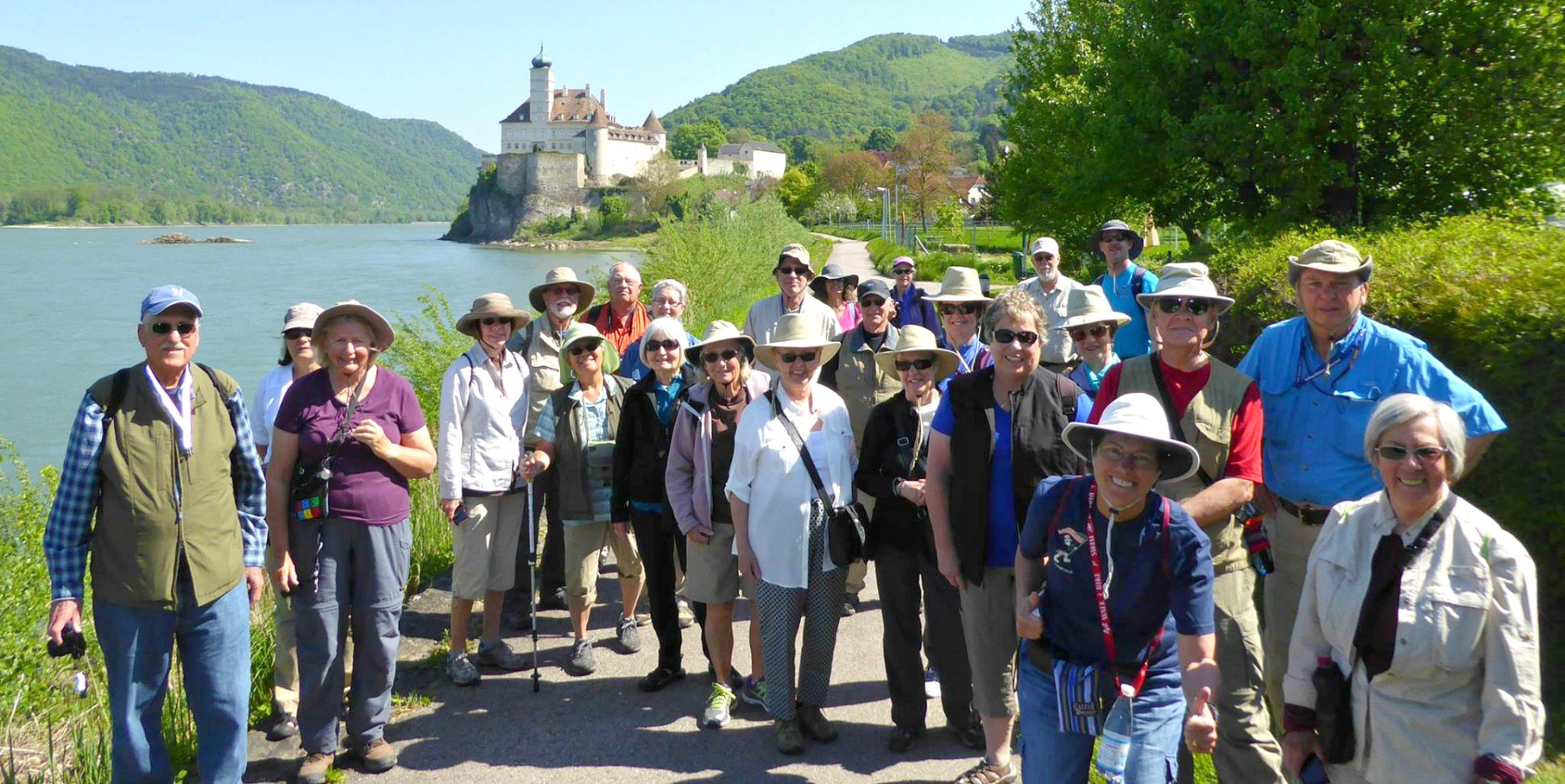Senior tour companies are experiencing a surge in popularity as the global population ages. This burgeoning market caters to a diverse clientele with varying needs and preferences, from adventurous retirees seeking thrilling expeditions to those prioritizing relaxation and comfort. Understanding this diverse demographic is key to success in this competitive sector, demanding innovative marketing strategies and adaptable service offerings.
This analysis delves into the key aspects of the senior travel industry, examining market segmentation, competitive landscapes, essential service features, effective marketing approaches, technological advancements, and the unique challenges associated with catering to older travelers. We explore how companies are adapting to meet the evolving needs of this significant demographic, highlighting successful strategies and future trends.
Technological Innovations in Senior Travel: Senior Tour Companies
The travel industry is increasingly recognizing the needs and preferences of the senior traveler demographic, a group known for its significant spending power and desire for comfortable, accessible, and enriching experiences. Technological advancements are playing a crucial role in catering to this market, enhancing both accessibility and the overall travel experience. This has led to the development of innovative tools and services designed to simplify trip planning and improve the journey itself.Technological Improvements Enhance Accessibility and Convenience for Senior TravelersMobile apps and online booking systems have revolutionized the way seniors plan and book their trips.
These platforms offer user-friendly interfaces, often featuring larger fonts, clear visuals, and simplified navigation. Features such as voice search and text-to-speech capabilities further enhance accessibility for individuals with visual or auditory impairments. Online booking systems eliminate the need for lengthy phone calls or in-person visits to travel agencies, providing seniors with greater control and convenience. Furthermore, these platforms often offer curated travel packages tailored to the specific needs and interests of older adults, such as slower-paced itineraries, accessible accommodations, and activities designed for varying levels of physical ability.
Innovative Technologies Used by Senior Tour Companies
Several successful senior tour companies are leveraging technology to create exceptional travel experiences. For example, some companies utilize GPS tracking systems to ensure the safety and well-being of their clients, providing real-time location updates to family members or emergency services if needed. Others incorporate virtual reality (VR) technology to offer immersive previews of destinations, allowing seniors to explore potential travel locations from the comfort of their homes before committing to a trip.
This reduces uncertainty and anxiety, a significant factor for many older travelers. Personalized itinerary apps, incorporating individual preferences and health considerations, are also becoming increasingly common. These apps provide step-by-step guidance, real-time translation services, and easy access to emergency contacts, enhancing both safety and independence.
Hypothetical Mobile App for Senior Travelers, Senior tour companies
Imagine a mobile application called “Silver Trekker,” designed specifically for senior travelers. The app’s visual design prioritizes clarity and ease of use. Large, high-contrast fonts and icons are employed throughout the interface, minimizing eye strain. The color palette uses calming and easily distinguishable hues, avoiding complex or jarring combinations. The main screen displays upcoming trips, with clear, concise details like dates, destinations, and itinerary highlights.
A prominent “Emergency” button is located at the top of every screen, providing immediate access to pre-programmed emergency contacts and location sharing capabilities. The app features a simplified booking system, allowing users to browse and select pre-planned tours tailored to their physical abilities and interests. Detailed information on each tour, including accessibility features of hotels and transportation, is readily available.
A built-in translator provides real-time language support, while a medication reminder feature ensures seniors adhere to their prescribed routines while traveling. The app also incorporates a social feature allowing users to connect with fellow travelers and share experiences, fostering a sense of community. The map feature utilizes large, clear icons and provides easy navigation, highlighting accessible routes and points of interest.
Finally, the app integrates with health monitoring devices, allowing for discreet monitoring of vital signs and the ability to alert emergency contacts if necessary.
Addressing the Unique Challenges of Senior Travel
/GettyImages-187613060-2be90e1a60bd49c4b1b4ebbde6eaa594.jpg)
Senior travel presents a unique set of considerations, demanding a proactive approach from tour operators to ensure the safety and well-being of their clients. Failing to account for the specific needs and vulnerabilities of older travelers can lead to negative experiences, impacting both the individual’s health and the reputation of the travel company. This necessitates a comprehensive understanding of potential risks and the implementation of robust mitigation strategies.
Health and Safety Concerns in Senior Travel
The physical and cognitive changes associated with aging increase the likelihood of health incidents during travel. Common concerns include falls, cardiovascular events, exacerbations of pre-existing conditions (such as respiratory illnesses or arthritis), and medication management challenges. The unfamiliar environments and increased activity levels inherent in travel can further stress the body, potentially leading to unexpected health crises. Cognitive decline can also contribute to disorientation, difficulty navigating unfamiliar locations, and increased susceptibility to scams or exploitation.
For example, a senior with heart conditions might experience increased stress from high altitudes or strenuous activities, leading to a cardiac event.
Risk Mitigation Strategies for Senior Travelers
Several strategies can effectively mitigate risks associated with senior travel. Pre-trip health assessments are crucial, allowing for the identification of potential health concerns and the development of personalized travel plans. These assessments should include a review of medications, pre-existing conditions, and any physical limitations. Choosing destinations and activities appropriate for the physical capabilities of the group is essential.
This might involve selecting destinations with accessible infrastructure, opting for slower-paced itineraries, and incorporating ample rest periods. Providing clear and concise information about the trip itinerary, emergency contacts, and local healthcare resources is also vital. Furthermore, arranging for travel insurance that covers medical emergencies and evacuations is a critical step in ensuring the safety of senior travelers.
Addressing the Needs of Seniors with Specific Health Conditions or Disabilities
Accommodating seniors with specific health conditions or disabilities requires a personalized approach. Travel arrangements should be tailored to meet the individual’s needs, including accessible transportation, lodging with appropriate amenities (e.g., ramps, grab bars), and assistance with activities. For instance, a senior with mobility issues might require a wheelchair-accessible tour bus and hotel rooms on the ground floor. Tour operators should collaborate with healthcare professionals to ensure the provision of necessary medical equipment and medications throughout the trip.
Regular check-ins with travelers can also help identify potential problems early on, allowing for timely intervention. Clear communication channels should be established, enabling seniors to easily report any concerns or request assistance.
Safety Measures Checklist for Senior Tour Operators
Prior to the trip, a comprehensive safety plan should be in place. This includes:
- Conducting thorough pre-trip health assessments for each traveler.
- Developing personalized itineraries that accommodate individual needs and limitations.
- Providing clear and detailed trip information, including emergency contacts and local healthcare resources.
- Ensuring adequate travel insurance coverage for medical emergencies and evacuations.
- Arranging for accessible transportation and lodging.
During the trip, ongoing monitoring is crucial:
- Providing regular check-ins with travelers to monitor their well-being.
- Establishing clear communication channels for reporting concerns and requesting assistance.
- Having a designated staff member responsible for addressing health emergencies.
- Maintaining a first-aid kit stocked with necessary supplies and medications.
- Collaborating with local healthcare providers to ensure access to timely medical care.
The senior travel market presents significant opportunities for tour companies willing to adapt and innovate. By understanding the specific needs and preferences of different senior segments, employing effective marketing strategies, and leveraging technological advancements, companies can build trust, enhance the travel experience, and capitalize on this expanding demographic. The focus on safety, accessibility, and personalized experiences is paramount to success in this increasingly important sector.
Understand how the union of best travel destinations for seniors can improve efficiency and productivity.



